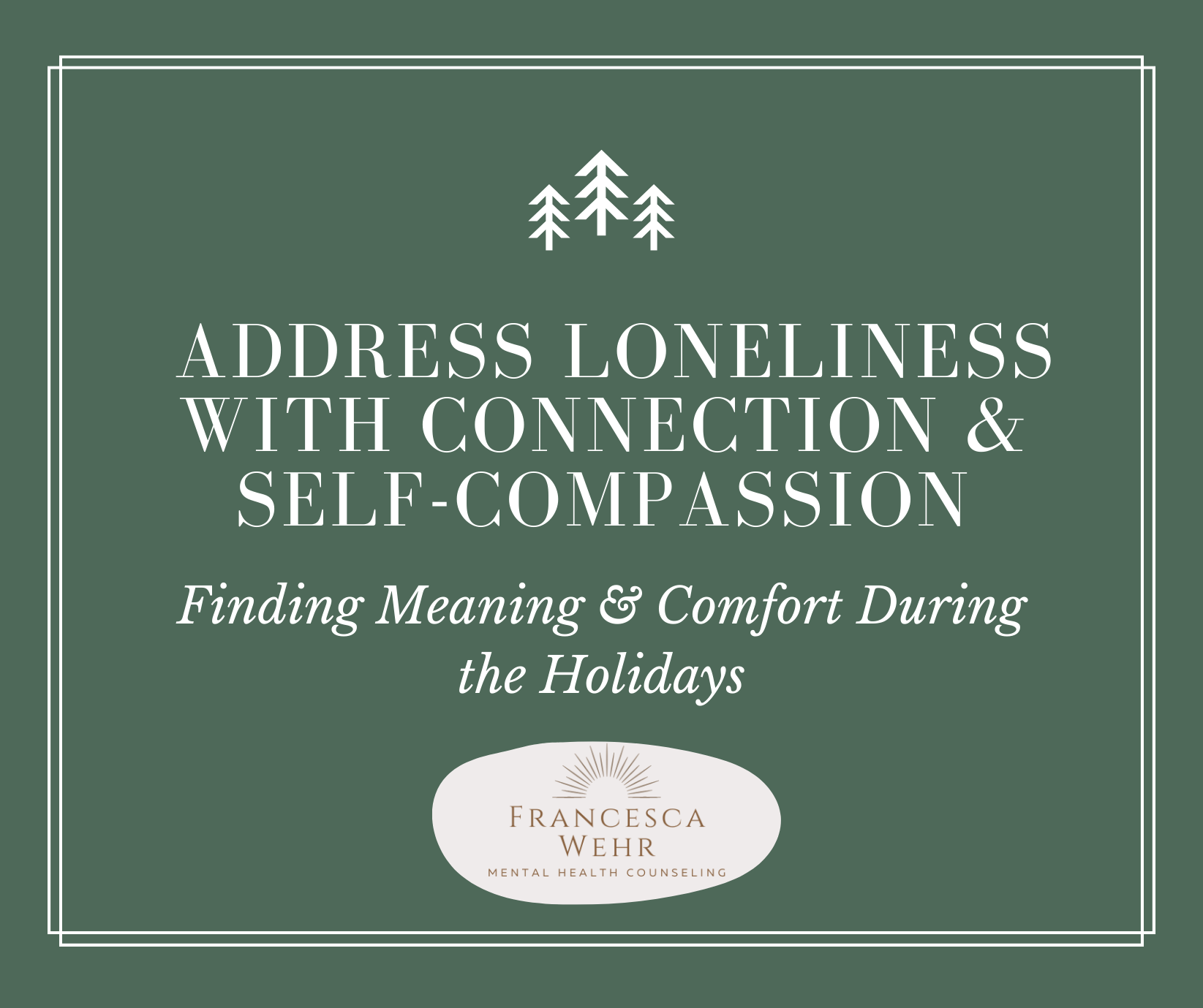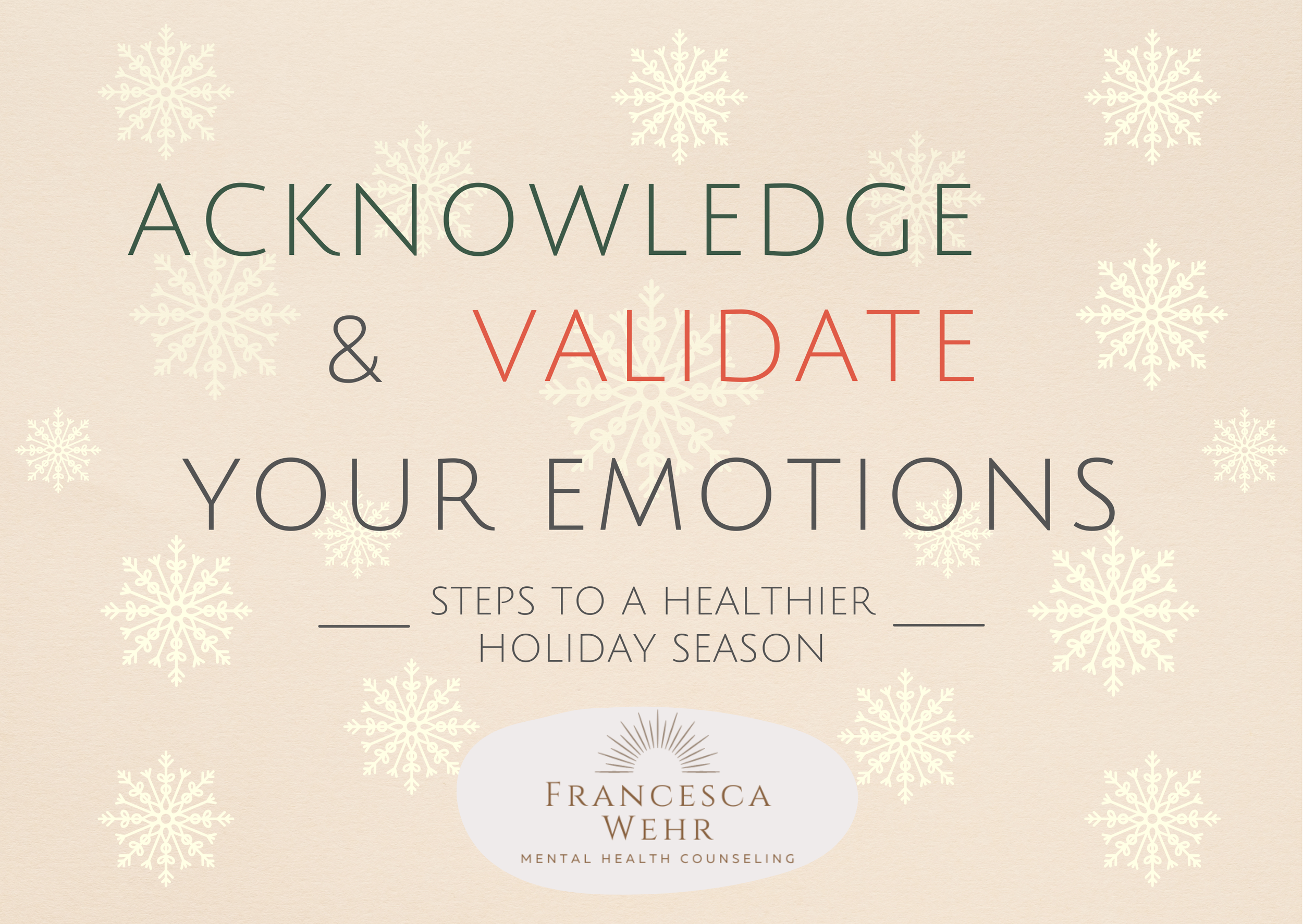
Reconnecting with Your Inner Child: A Deep Dive into Transformative Healing
The inner child is more than a metaphor—it’s a vital part of the healing journey. Explore how reconnecting with your inner child helps unravel emotional wounds, release survival patterns, and create lasting change from the inside out.

When Love Feels Distant: How Couples Become Strangers—And What Can Rebuild the Bond
When did we stop being close? Emotional distance can quietly unravel even the strongest relationships. But with small, consistent efforts, connection is possible again. Here’s how to begin the repair.

Understanding Grief: The "Ball in a Box" Analogy and Its Impact on Mental Health
This post expands on my original blog about the “Ball in a Box” analogy by offering a deeper, client-informed perspective. While the original version explains how grief may shrink over time, this update explores an alternative truth many grievers relate to: the grief may stay the same size, but life grows around it. This nuanced reframing offers comfort, especially for those who feel protective of their grief or struggle with the idea of “moving on.”

Unlocking the Healing Power of Music Therapy for Mental Health
Music isn’t just background noise—it can be a powerful tool for healing. Learn how music therapy supports mental health, eases anxiety, lifts depression, and helps people reconnect with themselves. Explore the science behind it and simple ways to use music in your own self-care.

Understanding Attachment Styles: How They Shape Relationships and Emotional Well-Being
Our attachment styles—secure, anxious, avoidant, or disorganized—play a key role in how we form and navigate relationships. Rooted in early experiences, these patterns influence intimacy, trust, and communication. Dive into the characteristics of each style and discover strategies to foster emotional growth and healthier bonds.

Understanding the Tapestry of Trauma Responses: A Deeper Dive
Trauma isn’t just about what happened—it’s about how your nervous system responded to a rupture in safety, trust, or connection. Many behaviors that seem confusing, frustrating, or even self-sabotaging are actually profound adaptations to distress. From emotional numbing to hypervigilance, people-pleasing to risk-taking, this article explores the nuanced spectrum of trauma responses and offers a compassionate reframing of these patterns. When we understand them as survival strategies—not flaws—we open the door to healing, self-trust, and deeper connection.

Understanding Grief: The "Ball in a Box" Analogy and Its Impact on Mental Health
Grief is an inevitable part of life, but understanding it can make the healing process more manageable. The "Ball in a Box" analogy provides a simple yet powerful explanation of how grief evolves over time. In this blog, we dive deep into the emotional and mental health impacts of grief, offering actionable coping strategies to help you navigate loss. Whether you're seeking personal healing or supporting a loved one through grief, this guide will provide the insights and tools you need to move forward with compassion and resilience.

Brainspotting Therapy: A Deep Dive into Healing Trauma and Emotional Regulation
Brainspotting therapy is a powerful method for healing trauma, anxiety, and emotional distress by targeting deep brain processes. Unlike traditional talk therapy, Brainspotting helps the nervous system reprocess stored trauma for lasting relief. Learn how it works, its benefits, and how it compares to EMDR.

Embracing Unconditional Positive Regard: The Heart of Therapeutic Rapport
On the Pathways to Wellness blog, Francesca Wehr, LCSW, discusses the transformative power of unconditional positive regard in therapy. Discover how this judgment-free approach builds trust, encourages self-acceptance, and strengthens the therapeutic relationship.

Address Loneliness with Connection & Self-Compassion: Finding Meaning & Comfort During the Holidays
The holidays can amplify feelings of loneliness, but you don’t have to face it alone. Explore ways to foster connection and practice self-compassion to find comfort and meaning during this season.

Redefine Expectations & Traditions: Creating a Holiday Season That Truly Resonates with You
Holiday perfectionism can lead to stress and disappointment. In this post, explore how to redefine your holiday traditions to align with your values and reduce pressure, creating a more meaningful and joyful season.

Acknowledge & Validate Your Emotions: Steps to a Healthier Holiday Season
The holidays can evoke a wide range of emotions. Instead of pushing them aside, learn how to acknowledge and validate your feelings. This post offers insights on embracing your emotional landscape with self-compassion.

How Trauma Impacts the Body: An In-Depth Exploration of Mind-Body Healing
Trauma affects more than just the mind—it leaves a lasting imprint on the body. Dr. Bessel van der Kolk’s concept, “The Body Keeps the Score,” reveals how trauma is stored within our physiology, often manifesting as chronic pain, fatigue, and other health issues. By exploring the powerful connection between mind and body, and through integrative approaches like somatic therapy, individuals can begin to heal from trauma in a truly holistic way. Discover how addressing both mental and physical aspects of trauma can lead to lasting wellness and resilience.

Unearthing the Roots: Understanding Phobias and Their Origins
Phobias are more than just intense fears—they’re often life-altering anxieties rooted in trauma, genetics, and learned behaviors. On the Pathways to Wellness blog, Francesca Wehr, LCSW, delves into the origins of phobias and explores therapies like EMDR and CBT to help you overcome these fears and regain control of your life.

Unraveling the Tangle: Understanding Emotional Dysregulation and Its Origins
Emotional dysregulation can make everyday life challenging, leading to intense, sometimes overwhelming reactions. This post delves into the causes of emotional dysregulation, from brain science to past traumas, and offers actionable strategies to help you manage your emotions more effectively. Discover how mindfulness, therapy, and self-care can pave the way to greater emotional balance.

Navigating Your Inner Landscape: Understanding and Enhancing Self-Esteem
In the latest edition of "Pathways to Wellness," Francesca Wehr, LCSW, offers a profound look into the dual pillars of self-esteem and self-worth, revealing how these crucial elements of psychological health shape our perceptions and interactions. This insightful exploration highlights the fluid nature of self-esteem, influenced by our successes and the way we perceive others' views of us, and contrasts it with the enduring nature of self-worth—a deep-seated belief in our intrinsic value. Whether you're looking to build resilience, enhance personal development, or foster a healthier, more balanced self-image, Francesca's expert guidance provides the tools and understanding needed to cultivate a stronger sense of self in an ever-changing world. Join us to uncover the techniques and strategies essential for nurturing your self-esteem and self-worth on your path to wellness.

From Survival to Healing: Navigating Post-Traumatic Stress and Finding Resolution
The last part of the “From Surviving to Healing” Trauma series, this blog post navigates the complex journey from survival to healing. This requires more than just revisiting traumatic memories; it demands a reconnection to the present and a reclamation of one's sense of safety and self. For many trauma survivors, the past feels unsettlingly close, a series of vivid flashbacks and heightened states that blur the lines between then and now. The challenge is not merely to recount the trauma but to feel, deep in one's bones, that it has passed and that safety has been restored.
Healing involves a delicate balance of acknowledging the trauma while firmly rooting oneself in the present, employing strategies to calm the nervous system, and recognizing triggers without being overwhelmed by them. Techniques like mindfulness, somatic therapies, and EMDR offer pathways to process traumatic memories in a way that diminishes their power, allowing survivors to redefine their narratives on their own terms. This transformative process paves the way for a life where trauma informs but does not control, where past pain leads to present resilience, and where each survivor can truly say, "I am here, I am safe, and I am moving forward."

From Survival to Healing: Understanding Trauma-Related Fragmentation and Dissociation
FROM SURVIVING TO HEALING: In the intricate landscape of trauma recovery, the phenomena of fragmentation and dissociation stand out as critical survival mechanisms employed by individuals facing overwhelming threats, particularly in childhood. These adaptive responses, deeply rooted in our biological and psychological makeup, serve to protect the psyche by compartmentalizing traumatic experiences, allowing for survival amidst adversity. However, these same mechanisms that once ensured survival can later obstruct the path to holistic healing, creating a complex interplay of internal parts that may feel disconnected or at odds with one another. Understanding these facets of the trauma response is pivotal in the journey from merely surviving to truly healing, offering a beacon of hope for those navigating the challenging path to integration and wholeness.

From Survival to Healing: Decoding the Language of Trauma Coping Strategies
Dive into our enlightening blog post, "From Survival to Healing: Decoding the Language of Trauma Coping Strategies," where we unravel the complex ways individuals adapt to past traumas. This insightful piece sheds light on the diverse survival mechanisms that emerge from traumatic experiences and how they shape our interactions and responses in adult life. Discover the transformative power of understanding and redefining these coping strategies, moving from mere survival to a path of meaningful healing and growth. Join us in exploring the journey from coping to thriving, as we decode the language of trauma and its impact on our lives.

From Survival to Healing: Insights into Our Brain and Body's Response
This blog post takes you on a personal journey through the landscape of trauma, focusing on the deep-seated responses our bodies and minds have to traumatic events. It sheds light on the limbic system—the emotional heart of our brain—and how it's hardwired to protect us, often leaving us with trauma that feels ever-present. We explore the idea of 'triggers,' those unexpected moments that suddenly transport us back to our traumatic experiences, and why they can be so powerful.
But this isn't just a scientific exploration; it's an invitation to see your own trauma responses in a new light. We delve into the idea that the ways we've reacted to trauma—perhaps with anxiety, avoidance, or hyper-alertness—aren't signs of weakness but are actually testament to our incredible ability to survive. Through personal reflection, the post encourages you to consider how these responses have served you, offering a compassionate perspective on your journey toward healing.




